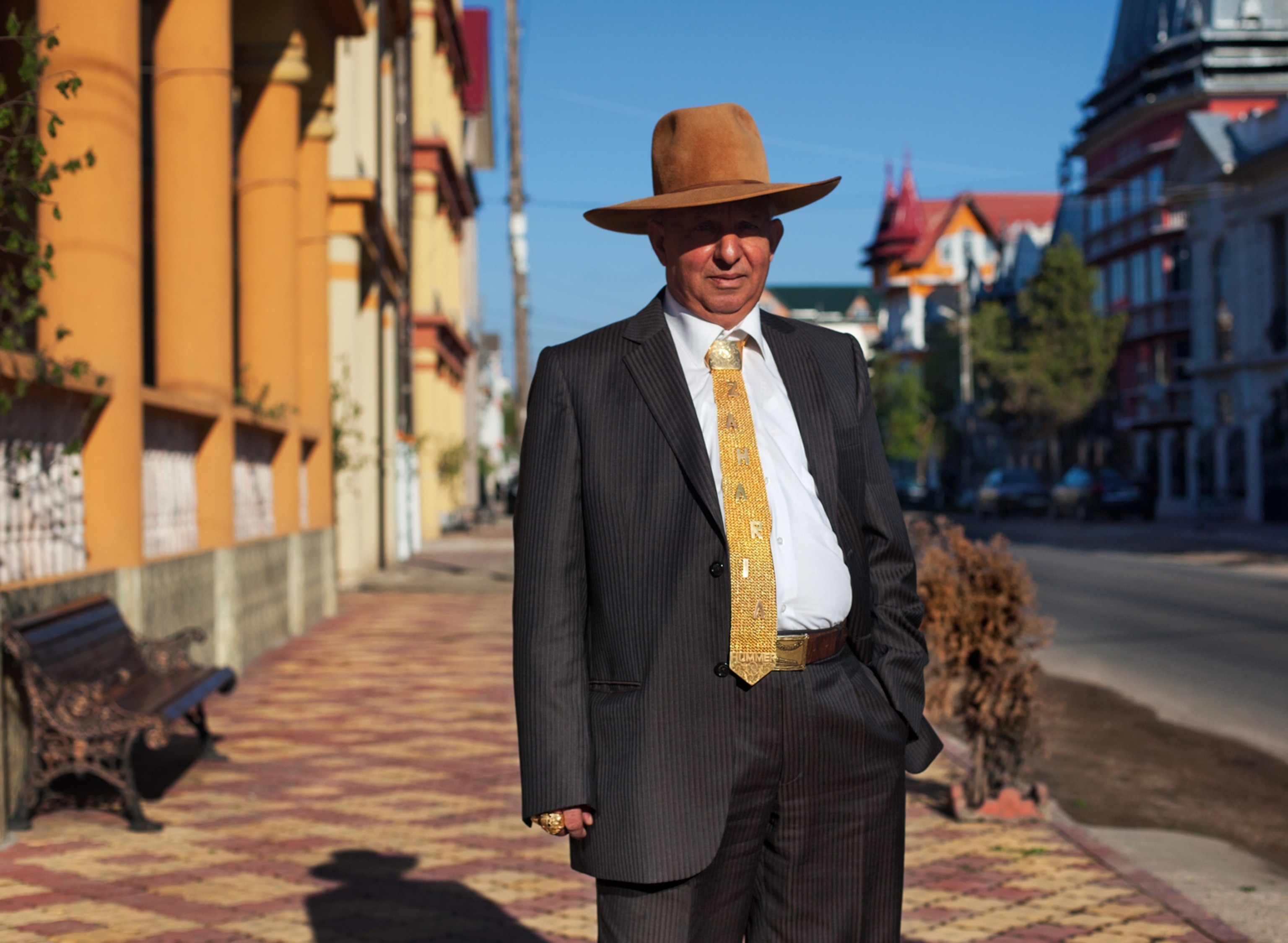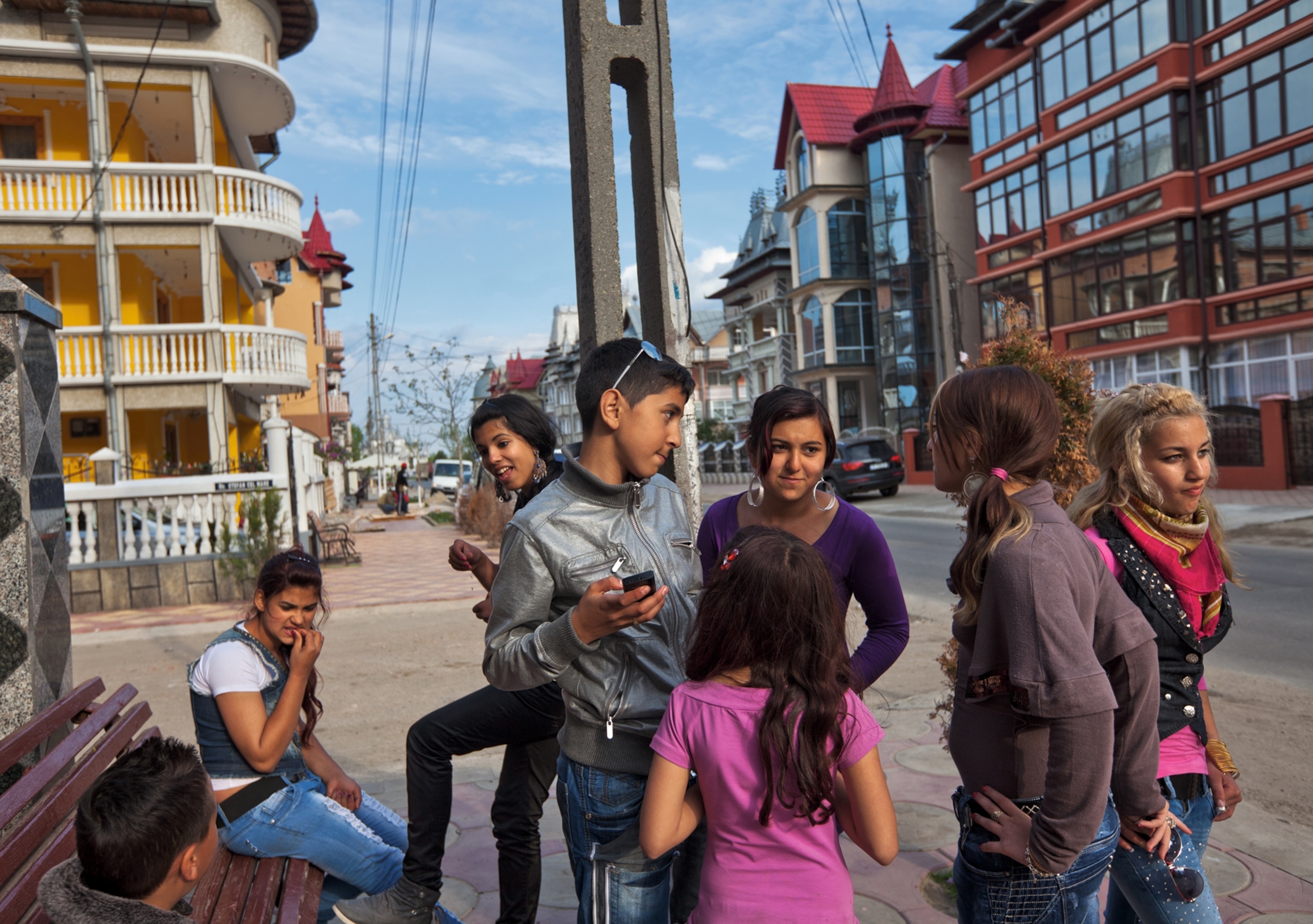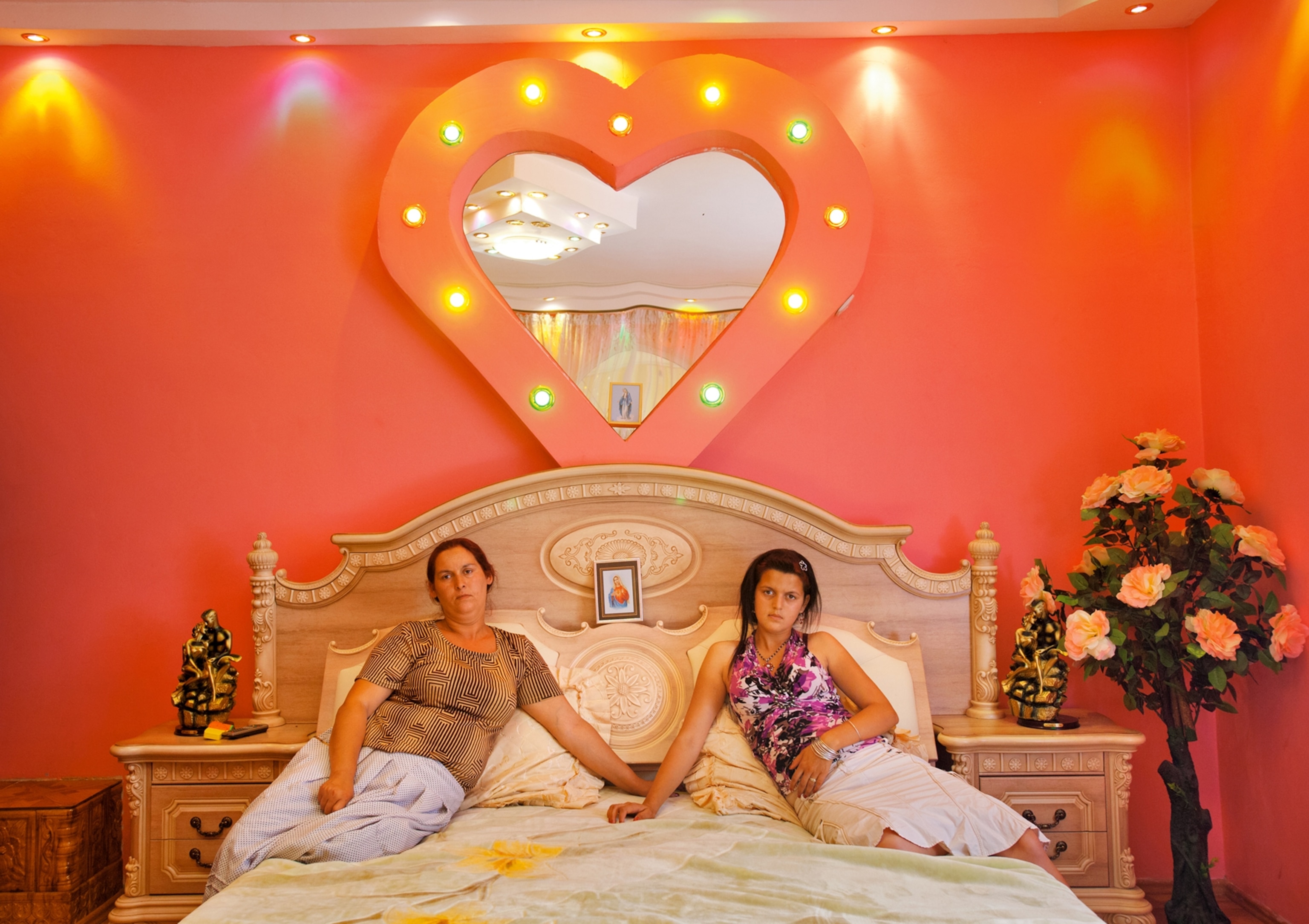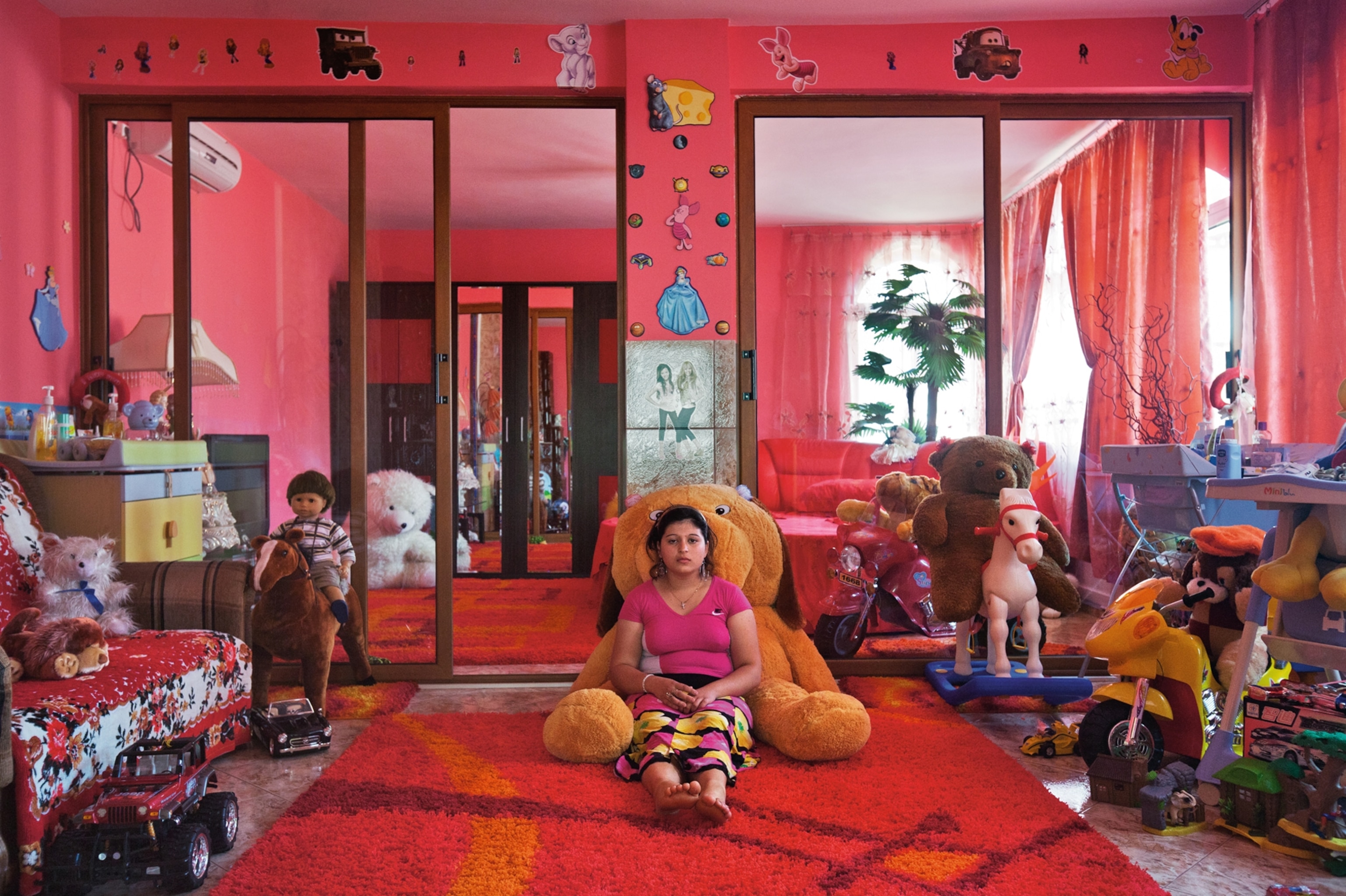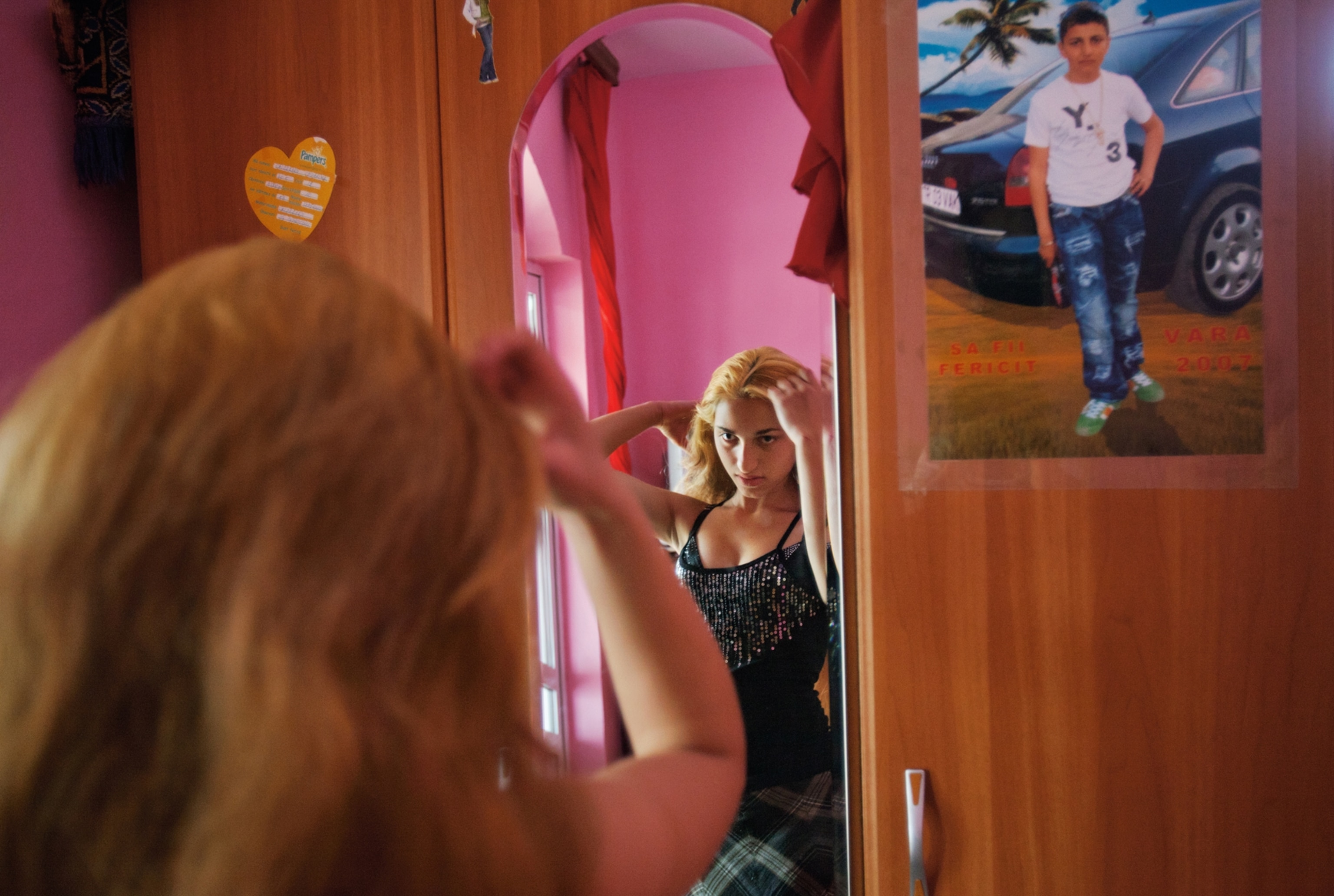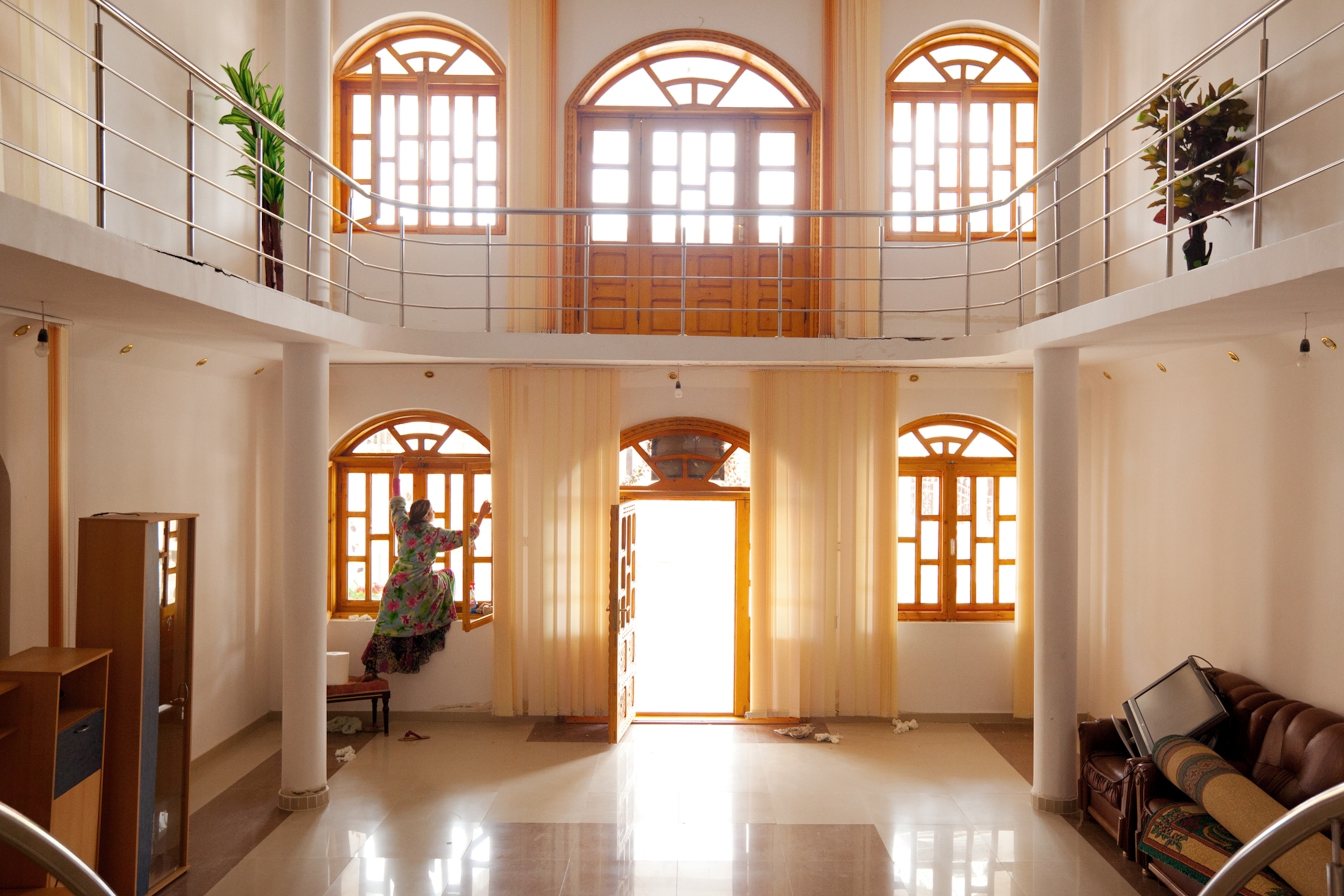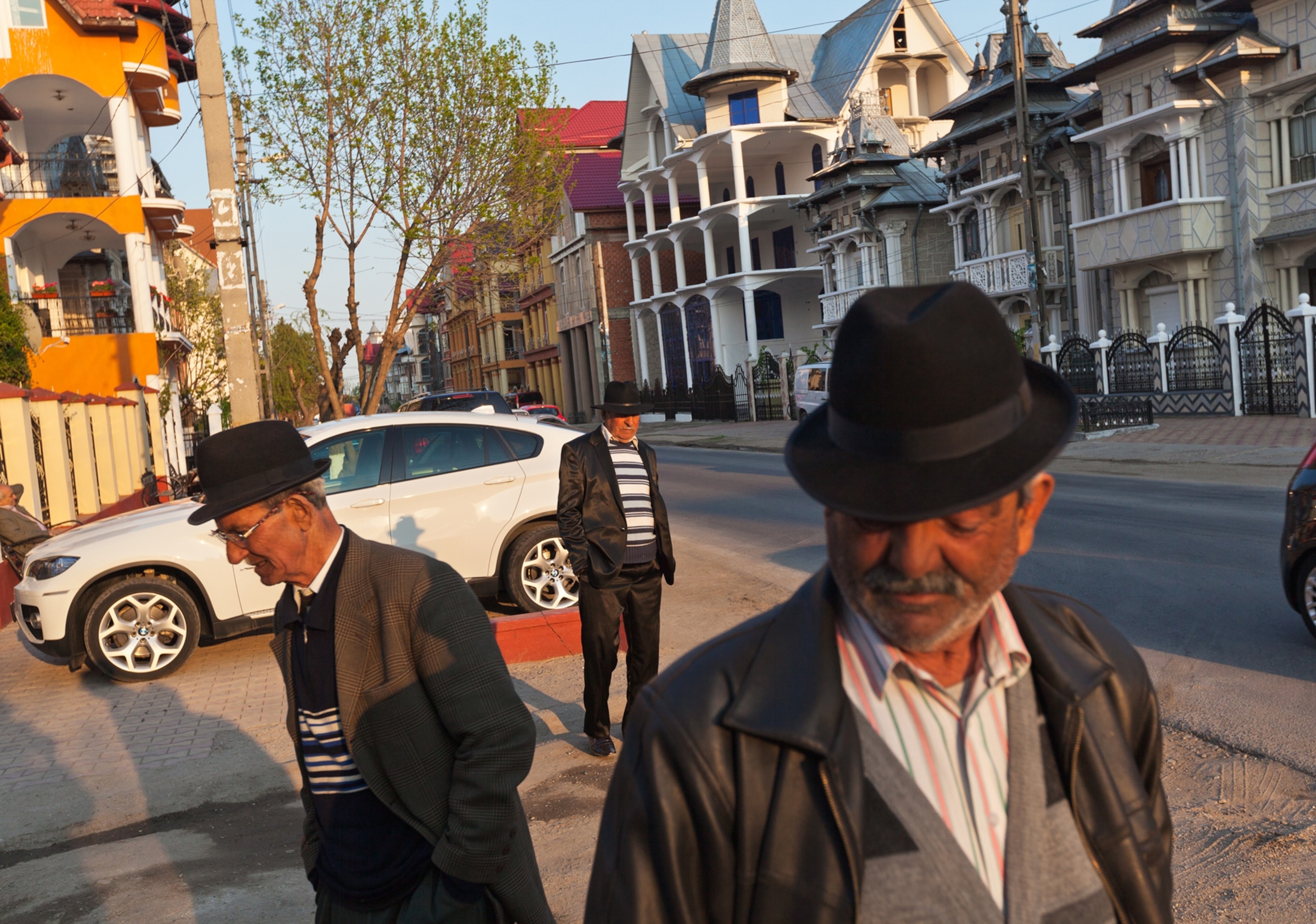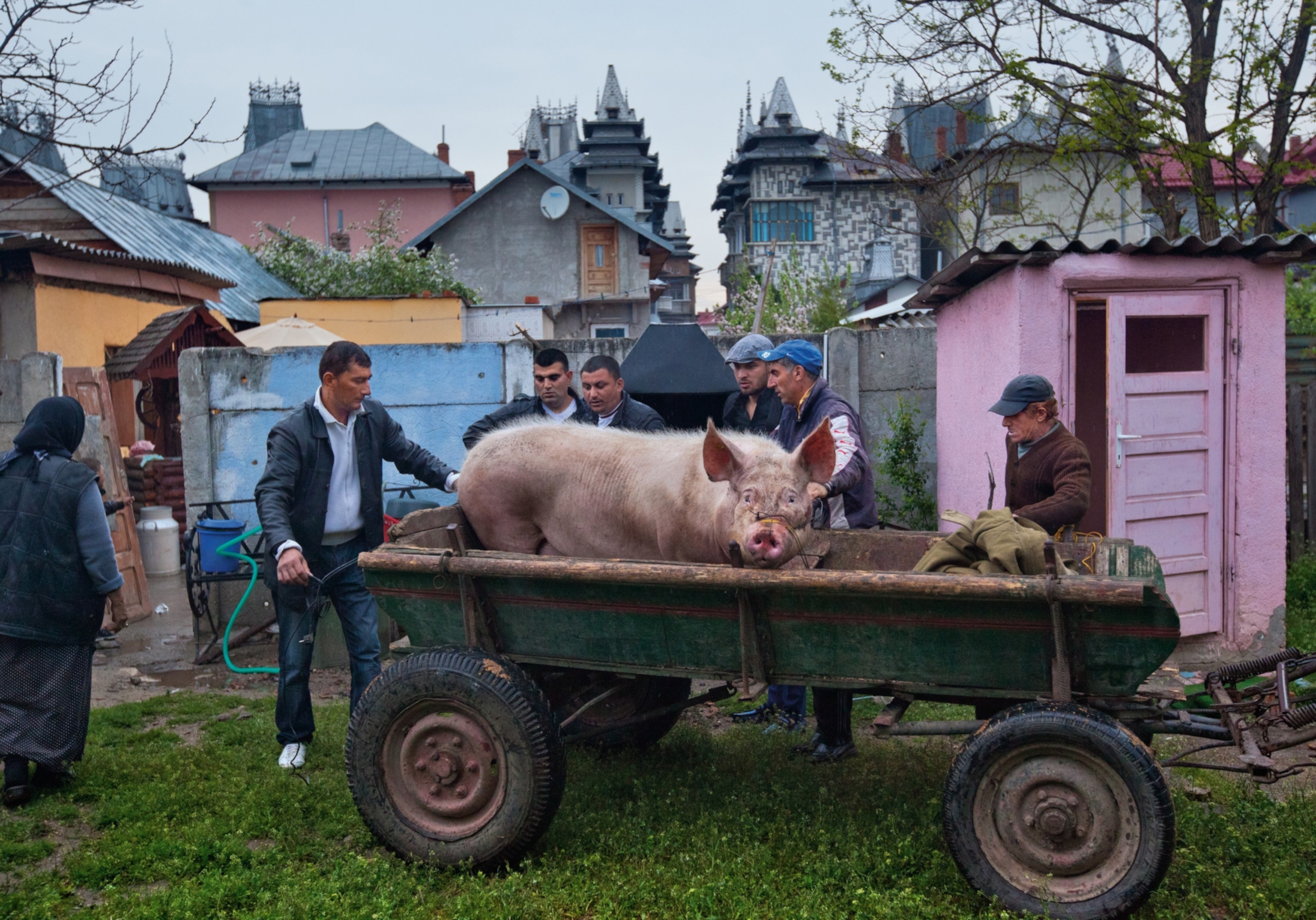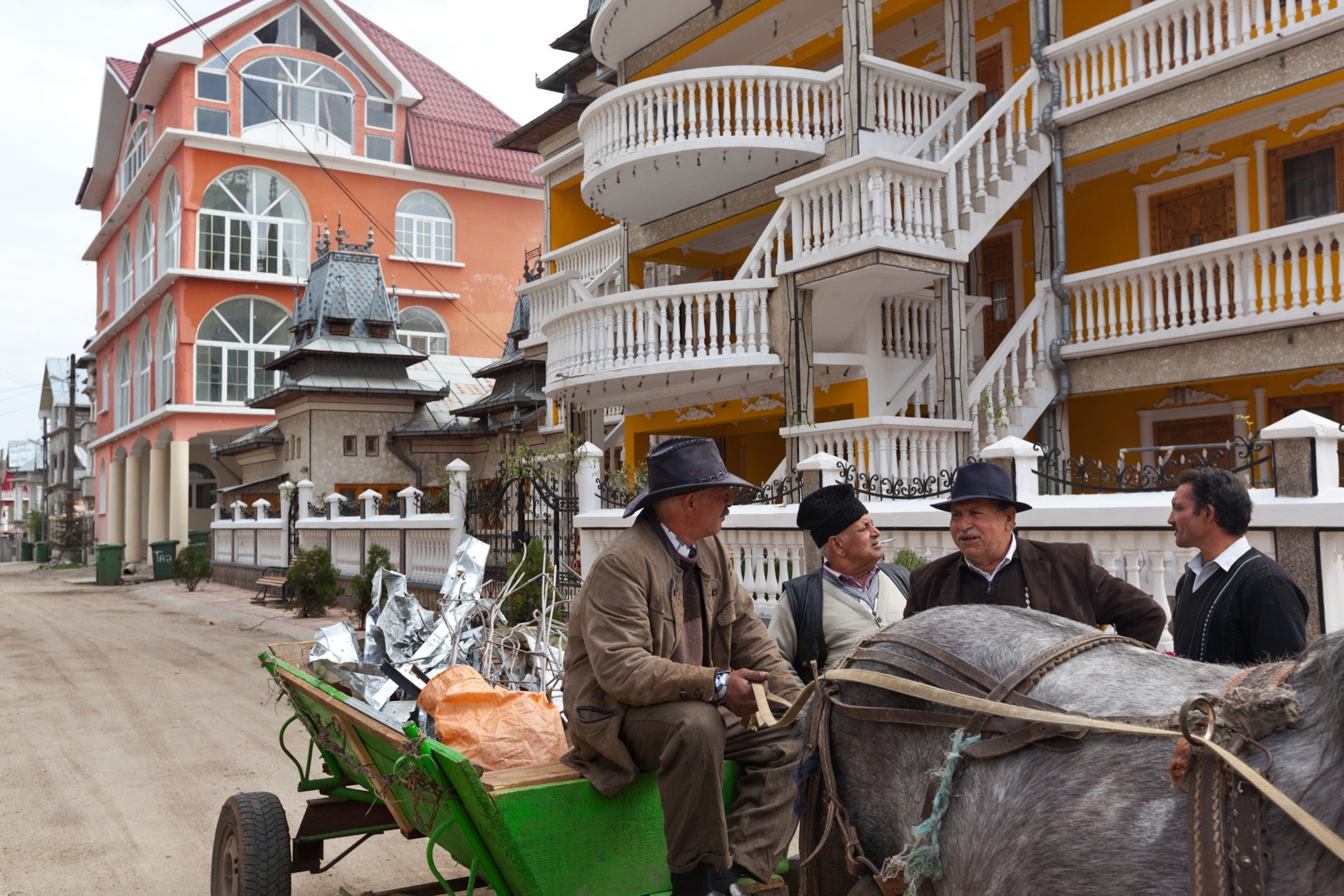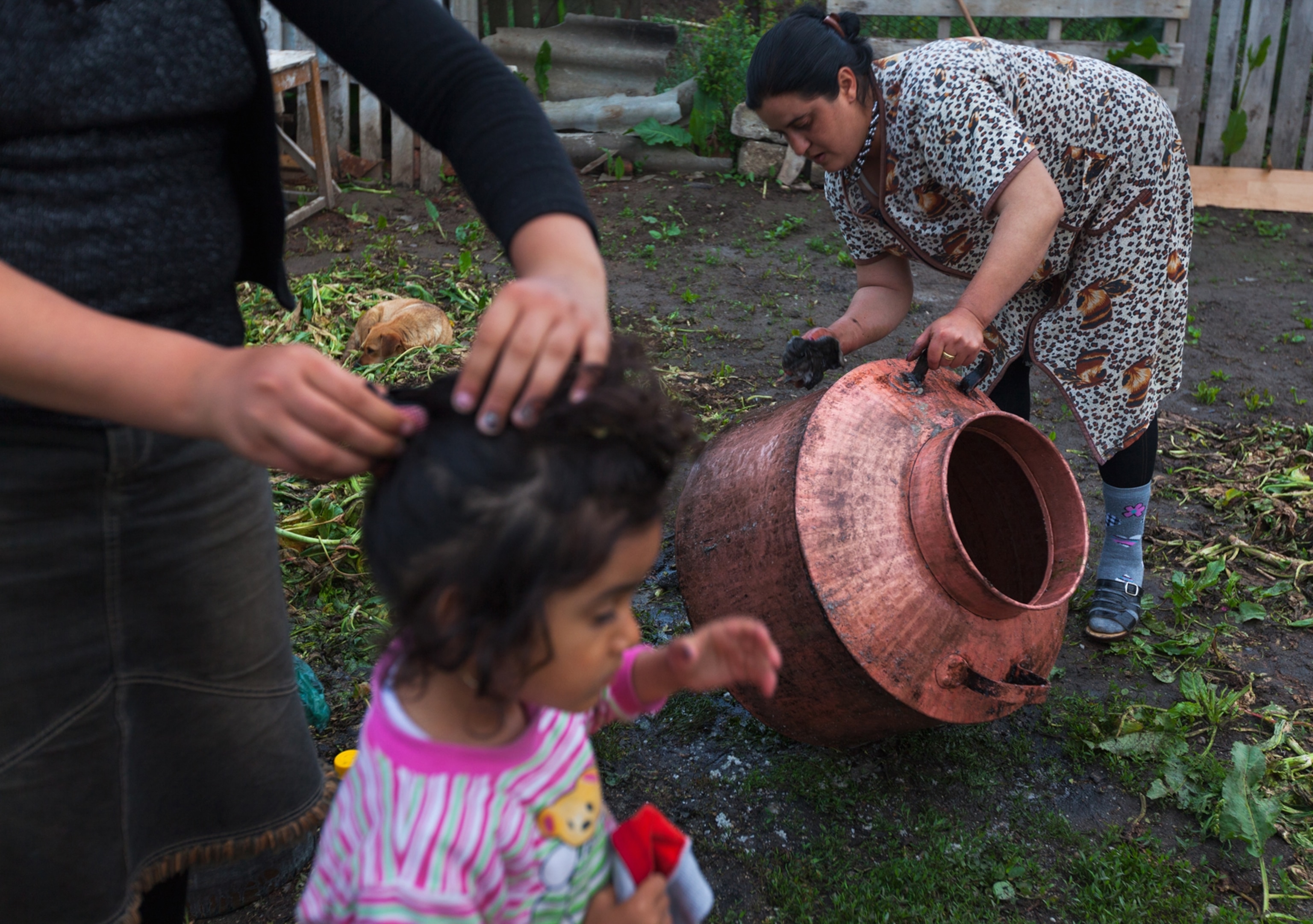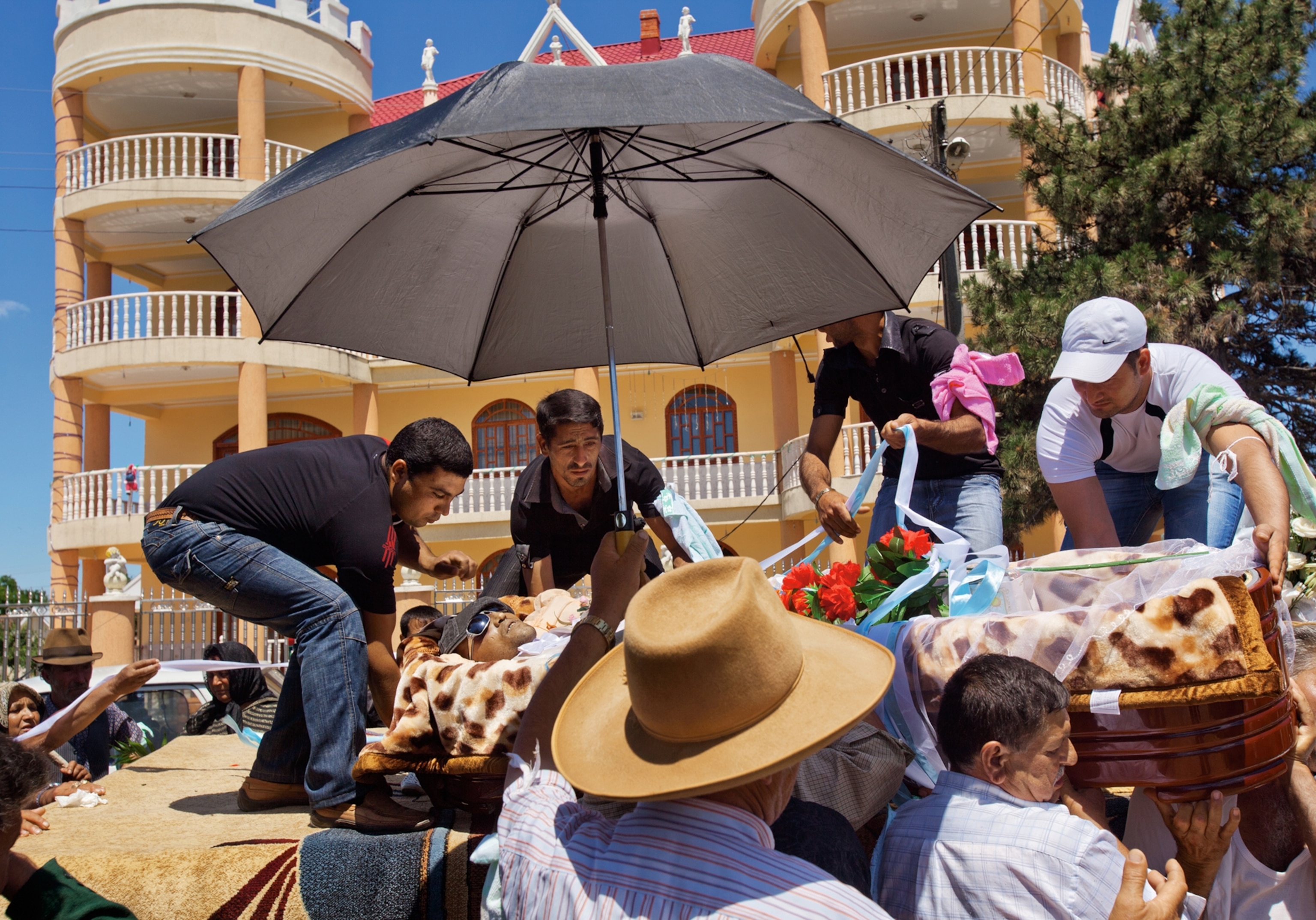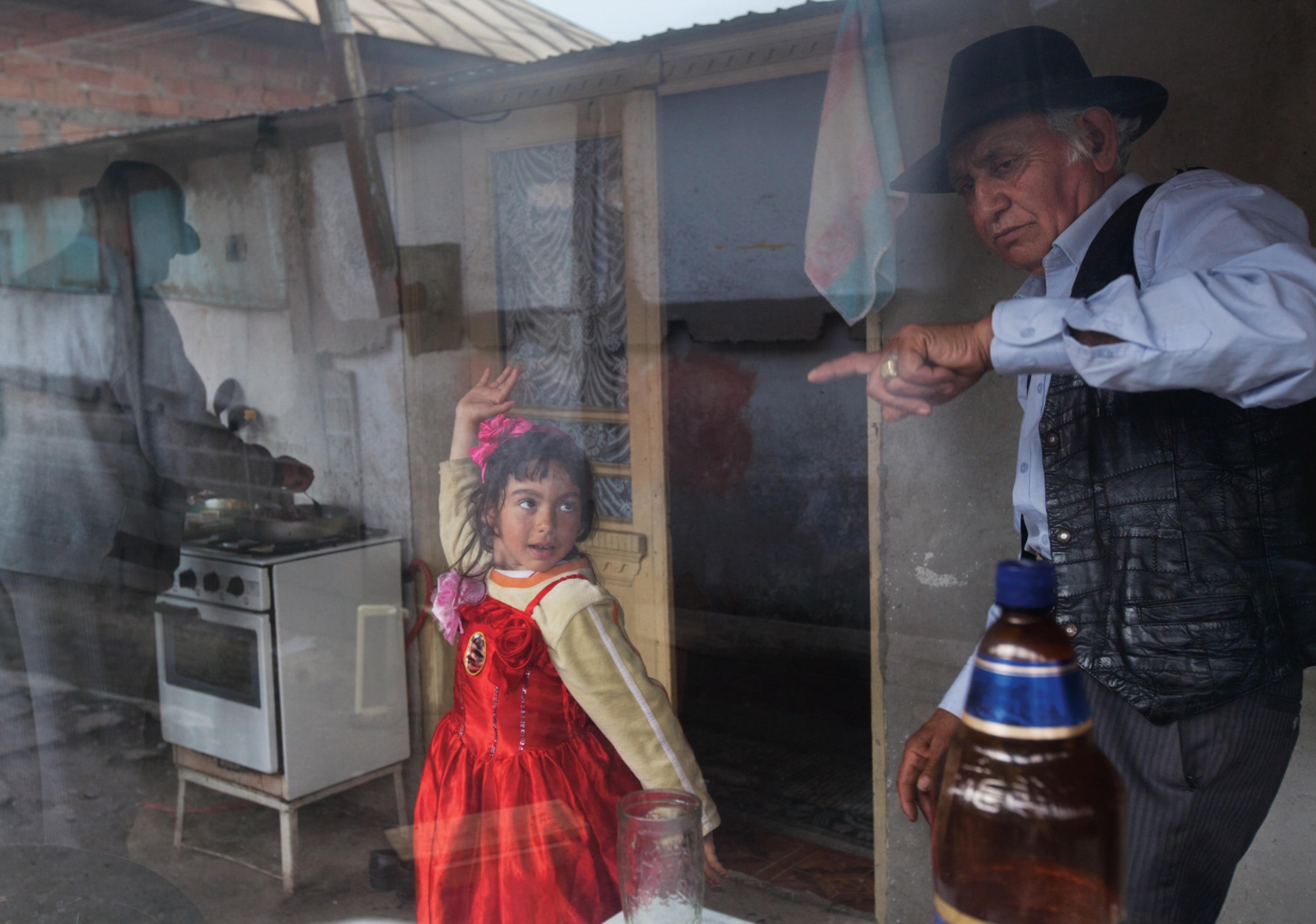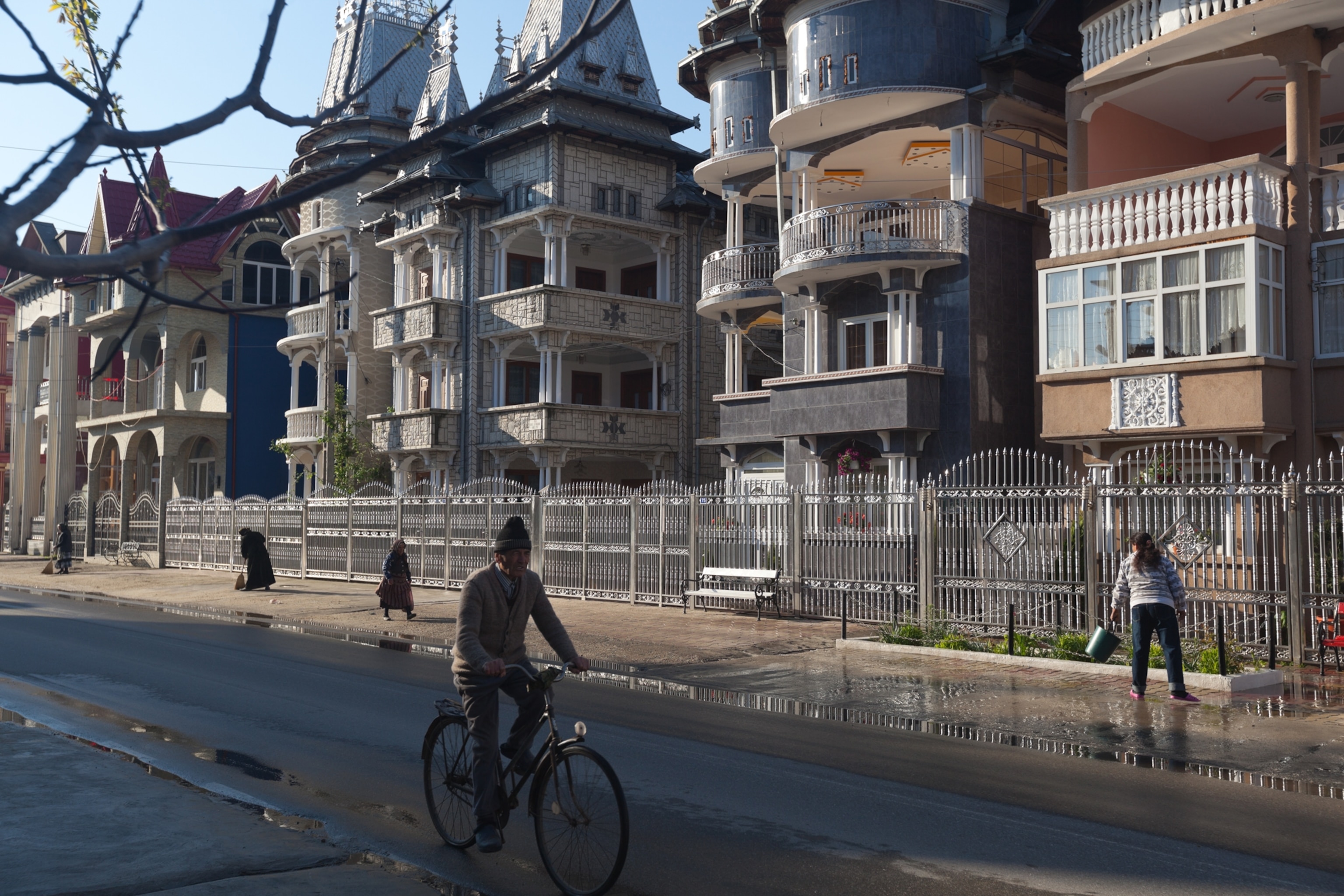Home of the Roma Kings
In a Romanian farm town, once itinerant traders have struck it rich, replacing caravans with mansions.
Hands folded over his prosperous belly, a straw fedora tight on his head like a crown, an old gent named Paraschiv sat back on a bench and surveyed his neighborhood realm. It was quite a sight for rural Romania. Up and down the main road and spilling into dirt side lanes reared improbable mansions. Facades undulated with balconies and pillars. Rooftops looked like party hats, all turrets and towers and domes. Sleek Beemers and Benzes patrolled the streets. Just then, a truck driver with a load of pigs ground down on his brakes to gawk. Paraschiv smiled. This was his hometown; this was Buzescu, showplace for that rarest of Europe’s demographics, the wealthy Roma.
Paraschiv doesn’t use the word “Roma,” the correct, respectful name for his ethnic group, meaning “men” in the Romani language. Instead he and most of his neighbors unselfconsciously refer to themselves as Tsigani, or Gypsies, the old, pejorative name they grew up with, a label still wielded by many non-Roma in his country, synonymous with beggar, thief, parasite, and other ugly words. In common use since the early 1600s, “Gypsy” derives from “Egyptian,” from the supposed origin of the Roma. Linguistic evidence indicates that the Roma came from India.
“I built one of the first mansions, in 1996,” Paraschiv said, nodding toward his villa-style home, a fanciful hulk encased in gray and white marble and cornered with balconies. The names of his children, Luigi and Petu, are stenciled atop a tin-sheeted tower. “My sons want to tear down the house and build a different shape; they say it’s out of fashion.” Paraschiv shrugged. “If my sons want to, then OK.”
At two stories, Paraschiv’s mansion is modest. Giant five-story palaces ribbed with columns have been multiplying on the southern end of town, the Romani district. Call it the monument style. There’s also the corporate HQ look, with curved, mirrored-glass walls; the nobleman’s castle, with sherbet-colored battlements and balconies arrayed like opera boxes; and the Swiss chalet, with high peaked roof and gnomes on the porch. It’s gaudy, uninhibited architecture, the taste blatantly nouveau riche. In all, about a hundred Romani mansions have sprung up in an otherwise dour farm town of 5,000 people some 50 miles southwest of the capital, Bucharest. About a third of the citizenry is Roma, not all of them rich but enough to make the town a strange, compelling statement of ethnic pride.
“Wealthy Roma” looks like a misprint, a snide joke. For many of the estimated two million Roma in Romania, or about 10 percent of the population, life is poor and nasty, their communities stuck in squalid city slums or in cardboard shanties on the edges of towns. They share this fate with Roma throughout Eastern Europe, where these formerly seminomadic people are a despised underclass, conspicuous for their poverty, lack of education, and stubborn insularity.
To many gadje, the Romani term for outsiders, the palatial homes of Buzescu’s Roma are a thumb in the eye, a flaunting of undeserved wealth. The Romani elite, however, seem to care less about impressing outsiders. Townspeople make it clear they don’t want strangers stopping to ask questions and take pictures. Pleaca, pleaca, go away, go away, children would yell at me. Adults glowered or turned their backs when I approached. “These places are not for you,” Roma sociologist Gelu Duminica told me, meaning anyone not Roma. The mansions are built for local eyes only, Duminica said, a way to strut wealth and status inside the Roma community.
So where does the wealth come from? The local Roma simply say, “Metal trading.” The Buzescu Roma are mostly Kalderash—“coppersmith” in Romani—a group traditionally associated with metalworking. As recently as the early 1990s, Buzescu families still traveled the countryside in horse-drawn caravans, stopping in towns to sell cazane, copper stills for making fruit brandy. It was a lucrative business for the best craftsmen, like Paraschiv, with a cazane selling for hundreds of dollars. Communist authorities, however, kept a tight watch on Romani activities, and the richest families kept a low profile.
When Romania’s communist regime fell in 1989, the entrepreneurial instinct of the Kalderash was unleashed. Cazane makers and their sons spread across Romania and the rest of Eastern Europe, stripping derelict factories, sometimes illegally, of silver, copper, aluminum, steel, and other valuable scrap. By playing the commodity market, some Buzescu Roma reaped hefty profits. Marin Nicolae, a former cazane maker, says: “After the revolution, even a stupid person could build five villas buying and selling metal.”
For a week I walked up and down the streets of Buzescu, trying to talk my way into mansions. Photographers Karla Gachet and Ivan Kashinsky had paved the way, living two months on and off in the Romani quarter, gaining access to a number of homes only after strenuous persistence. Holding up photos Karla and Ivan had taken of people inside the big houses, I stood at front gates, appealing to the owners’ curiosity and vanity. Sometimes it worked.
Front doors would open to gleaming expanses of marble, ceilings hung with chandeliers, and, like the main prop of a stage set, a grand Gone With the Windstaircase leading to bedrooms heaped with toys. Yet most rooms looked totally unlived in. In mansions with a dozen rooms or more, often the only occupants were grandparents and a few young children, and they mostly stayed in back rooms and ate in the kitchen. The parents and older sons were off doing business, usually returning for holidays, baptisms, and funerals. The mansions had been built largely as showrooms to be filled with pride and awe.
Another surprise was that behind the showy facades, time-encrusted customs remained in force. At Victor Filisan’s house, where he offered me the local drink of Jack Daniel’s and Red Bull, I asked to use the toilet. He showed me not to the Jacuzzi-equipped bathroom inside but to an outhouse at the back of the lot, the same one he and his wife use. For reasons of ritual purity, many Roma, especially older ones, do not cook and use the toilet under the same roof. In other houses, I saw teenage wives serving meals to teenage husbands. Arranged matches of children as young as 13 remain common among the town’s wealthy families.
The community’s itinerant past never seemed that far away either. It was a restless town. Families were constantly leaving, heading off to Spain, France, Bucharest. Old men on corners reminisced about their traveling days, nostalgic for the variety and adventure. They also gossiped about shifting fortunes, blaming a roulette wheel operated by gadje for bankrupting households. On every street people were building new houses or tearing down old ones to erect bigger, bolder mansions, like what Paraschiv’s sons had in mind. Nothing seemed permanent except family ties.
“We are the most civilized Gypsies in Romania,” a man named Florin bragged to me. “If we see something beautiful, we want something even more beautiful.” When I repeated this to an elderly widow, Rada, who had once lived in a mansion but is now ending her days in a small musty house with chickens running in and out the kitchen door, she looked at me, foolish gadjo, and said, “No matter how high you build up, everyone ends up in the grave.”

